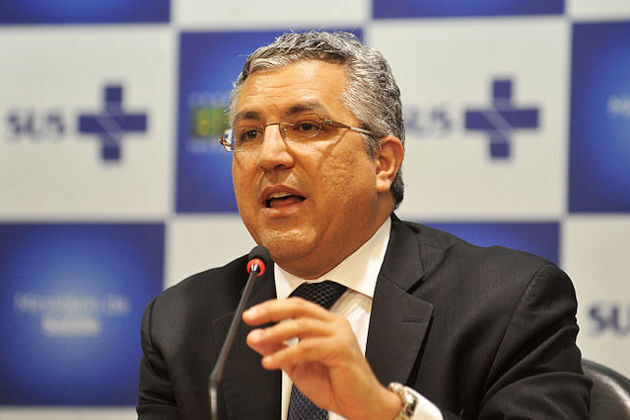Move FM Global News

Brazil minister canceled UN trip after ‘unacceptable’ U.S. visa
Sep 24, 2025SAO PAULO, Brazil: Brazil’s health minister said this week he is not attending the United Nations General Assembly in New York after receiving what he described as an “unacceptable visa” from the United States that restricted his movements.
Alexandre Padilha, a senior aide to President Luiz Inácio Lula da Silva, announced he would remain in Brazil. He accused Washington of imposing “unfounded and arbitrary limitations” on the country’s diplomatic representation.
The dispute highlights worsening tensions between the two nations since President Donald Trump imposed 50 percent tariffs on Brazilian exports following the conviction of former President Jair Bolsonaro. Brazil’s Supreme Court sentenced Bolsonaro to 27 years in prison for attempting a coup, a verdict Trump has publicly denounced.
Two Brazilian officials told the Associated Press that Padilha’s visa, approved only after long delays, confined him to the U.N. complex and areas near his hotel in New York. Brasília formally protested to the U.N., warning that other Brazilian delegates might also face visa restrictions.
In a letter to Secretary-General António Guterres, Brazil argued the restrictions violate Article 105 of the U.N. Charter and the Convention on Privileges and Immunities, which guarantee free movement for official delegations. The letter also cited U.N. resolution 43/48, which requires the host country to grant full access regardless of political differences. Neither Washington nor the U.N. has responded publicly.
Padilha had initially planned to visit Washington for additional meetings. His previous visa expired in August. In June, his wife and daughter saw their U.S. visas revoked under Trump’s order targeting officials linked to Cuba’s medical missions. During Dilma Rousseff’s presidency, when Padilha also served as health minister, Brazil hired thousands of Cuban doctors through such programs.
Speaking to GloboNews, Padilha insisted Brazil’s diplomatic and scientific agenda would not be derailed. “They might stop the minister from being present, but the defense of science, vaccines will go forward,” he said. “This U.S. president will not be able to stop it.”
On Sunday, Lula published an opinion piece in the New York Times affirming that while Brazil is ready to negotiate on matters of mutual benefit, “democracy and sovereignty are not on the table.” He praised the Supreme Court for its “historic decision” to protect democratic institutions, rejecting Trump’s claim that Bolsonaro’s conviction was a “witch hunt.”
The U.S. has also sanctioned Justice Alexandre de Moraes, who oversaw Bolsonaro’s trial, citing the Global Magnitsky Act. The sanctions freeze any U.S.-based assets belonging to de Moraes, underscoring the deepening rift between Washington and Brasília.


